Healthy Eating Tips from Nutrition Expert
|
Check out these healthy eating tips from nutrition expert Jenny Fong, M.S., CPT. EAT MORE WHOLE GRAINS |
CHOOSE HEALTHY PROTEIN SOURCES
Plant-based sources: plant based protein sources do not contain saturated fat and can be a great source of heart healthy unsaturated fats, fiber, and other nutrients. Examples include: nuts and seeds, tofu, beans, and lentils.
Fish and seafood: The American Heart Association recommends eating fish at least twice a week. Fish is an excellent source of protein and is relatively lower in saturated fat than other fatty meat products. Fatty fish are an excellent source of omega-3 fatty acids that are associated with a lower risk for heart disease and stroke. Examples include: anchovies, herring, mackerel, black cod, salmon, sardines, bluefin tuna, whitefish, striped bass and cobia.
Nonfat and low-fat dairy products: Full fat dairy products are higher in saturated fat which is linked to increased cholesterol and increased risk for heart disease. Try choosing lower fat or nonfat varieties instead.
Lean and unprocessed meats: Animal based protein sources contain saturated fat, which is linked to increased cholesterol and increased risk for heart disease. Choose leaner cuts of meat to reduce your intake of saturated fat.
GOOD FATS VS. BAD FATS
Fats are an important part of a healthy diet. But the types of fats you choose to consume can have different effects on your heart health.
UNSATURATED FATS: Unsaturated fats lower rates of cardiovascular and all-cause mortality, lower bad cholesterol and triglycerides, and are a good source of essential fatty acids. These fats are generally liquid at room temperature. Sources include olive oil, canola oil, avocados, nuts and seeds, omega-3’s from fatty fish.
SATURATED FATS: Saturated fats are generally found in animal based food products. Eating too much saturated fat leads to increased bad cholesterol and increased risk of cardiovascular disease. These fats are generally solid at room temperature. Hydrogenated oils and tropical oils (eg: palm oil) also contain a significant source of saturated fats.
TRANS FATS: Fun fact: Trans fats were made as a healthier alternative to saturated fats. We later learned that trans fats both increases bad cholesterol and decreases good cholesterol, which is arguably worse than the effects of saturated fat for heart health. Avoid foods that include oils that are “partially-hydrogenated.”
EAT MORE FRUITS AND VEGETABLES
Incorporating a variety fruits and vegetables into your diet provides lots of fiber and nutrients that are linked to a lower risk of heart disease. Fresh, frozen, or canned fruits and vegetables all can be a healthy addition to your diet. Just watch out for products with added sugars and salt. Try to pick fruits and vegetables of different colors. Eat the rainbow!
LIMIT SODIUM INTAKE
The average American consumes an average of over 3,400mg of sodium each day. The recommended sodium intake is < 2,300mg per day. Excessive sodium intake causes water retention which increases the volume of blood flowing through your blood vessels. This causes an increase in blood pressure which is one of the major risk factors for heart disease. Reducing your sodium intake will reduce your risk for high blood pressure.
Over 70% of our sodium intake comes from packaged and prepared foods. Choosing to eat foods prepared at home allows you to know what goes into your food to help you manage your sodium intake. When eating packaged foods, check the nutrition label for sodium. You’ll be surprised to find that there are foods that contain much more sodium than you expect!
LIMIT ADDED SUGARS
Research has shown that excessive added sugar intake is linked to higher blood pressure, inflammation, weight gain, diabetes, and fatty liver disease. All of these are factors that increase risk for heart disease and stroke. Per the American Heart Association, limit consumption of added sugars to no more than 6% of calories per day, or 24g for the average woman, and 36g for the average man.
Not all sugar is bad. Naturally occurring sugars found in foods like fruit (fructose) and milk (lactose) have not been implicated in the development of chronic disease. These foods provide vitamins and minerals, fiber, protein, and healthy fats, which are all needed as a part of your heart healthy diet.

